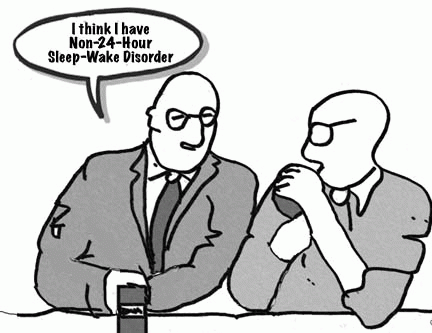(Article changed on February 4, 2014 at 11:01)
Most of us have our guard up when it comes to direct-to-consumer drug advertising. We know the butterflies, sunsets and puppies in the TV ads are designed to distract us from words like "blood clot", "heart attack", "stroke", "seizure", "life-threatening allergic reaction" and "death." We are aware that more than half the ads tells us why we don't want to ask our doctor about the new wonder drug.
Unbranded advertising, however, is much more insidious. Instead of selling a drug, it sells the disease driving the drug sales and sometimes doesn't mention the drug at all.
Unbranded advertising often appears to be from the CDC and can even run free as a public service announcement thanks to its apparently altruistic message. The hallmark of unbranded advertising is it calls the disease it is hawking (whether depression, bipolar disorder or restless legs) "under diagnosed," and "underreported" and cites "barriers" and "stigmas to treatment" which of course means sales. Sometimes it calls the disease a "silent killer" to scare people who think they're fine. (Before drug advertising it was the opposite: the medical establishment said you were probably fine despite how you felt.)
Do You Have Non-24 Hour Sleep Wake Disorder?
"You can't see me because of radio" and I can't see you because I'm totally blind ." So begins a high saturation radio campaign that launched late last year to boost "awareness" of an obscure circadian rhythm disorder called Non-24 Hour Sleep Wake Disorder in typical unbranded drug marketing fashion. How obscure is Non-24? There are only 146 citations for the disorder in the entire US National Library of Medicine . By comparison, there are 8,463 citations for the plague.
The narrator says his blindness doesn't "hold me back" but he often "struggles to keep up" because he is not "sleeping through the night." He then says, "Sound familiar? You're not alone!" The ads are from the Washington, DC-based drug company Vanda whose drug candidate for people who are blind and have Non-24, Hetlioz, received an FDA Advisory Committee recommendation for approval in January which means the FDA will likely approve it. Hetlioz is said to be chemically related to the sleeping pill marketed as Rozerem (Ramelteon).
Of course the development of "orphan drugs" that treat such a small part of the population (like the blind) they are not commercially viable is laudable. But orphan drugs are not usually accompanied by multi-million dollar ad campaigns and slick websites. (Nor are important messages for the blind usually on the Web.) Is there something disingenuous going on? For example, under "Could You Have Non-24?" on the site, it says "The key symptoms of Non-24 are the inability to sleep or stay asleep and a powerful urge to sleep during the day" with no mention of blindness. A longer list on the site mentions waking up "groggy," being "less productive than usual at work or at school," relationships that "are strained," "sluggishness and forgetfulness," mood that is "affected" and frustration "because no one seems to understand what you're going through," and also doesn't mention blindness.
You don't have to be a cynic to wonder if the new disease--and the drug that will treat it if approved-- is actually being marketed to the hundreds of millions of adults with sleep problems. When I called the phone number and asked the "health educator" if I could have Non-24 even though I am not blind, I was told "you don't have to be blind to have Non-24" though it is more common in blind people. When I asked if there was a pill I could take if I had symptoms, my educator said he was unable to answer that because, "I am not a doctor," be promised to send me more information.
(Note: You can view every article as one long page if you sign up as an Advocate Member, or higher).






